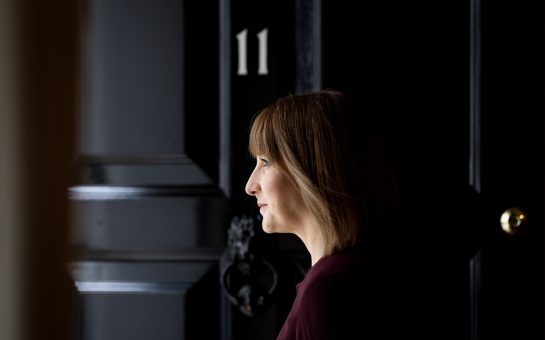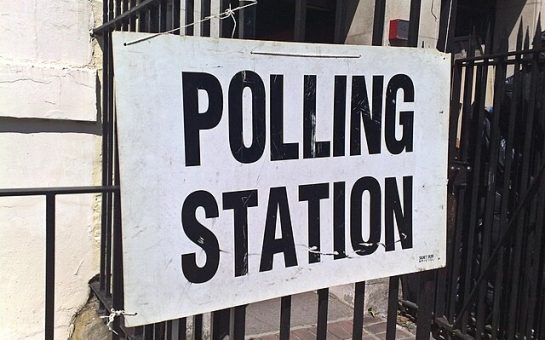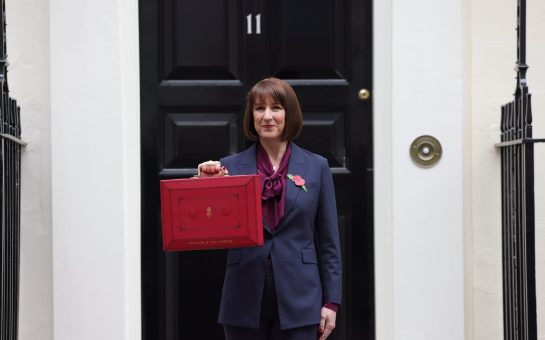As the tension and the media coverage builds in the final leg of the race to become Britain’s next Prime Minister, MM have got in touch with a local politics expert to get his views of how the atmosphere surrounding the General Election has changed in Manchester over the last 32 years.
Veteran politics teacher at Manchester Grammar, Richard Kelly, recalls his first general election living Manchester – and how different things are ahead of this year’s vote.
After securing a job teaching A-Level Politics, I first came to live in Manchester 32 years ago.
However, when I consider the political changes that have occurred here since, it sometimes feels as if I have been in the city several centuries as opposed to a few decades.
At the time of my arrival, the 1983 general election was in full swing.
Needless to say, the headline politicians then were very different to those of today – the Conservatives were led by PM Margaret Thatcher, stoutly supported by senior Tories like Willie Whitelaw, while opposing them was a Labour Party led by Michael Foot and fired up by Tony Benn.
Not a great deal was heard in that election from David Cameron, Ed Miliband and Nick Clegg – they were too busy preparing for their O-Levels.
But the differences were also structural. Back in 1983, for instance, Britain’s third force was an ‘Alliance’ of the old Liberal Party and the new Social Democratic Party.
Led by the likes of Roy Jenkins and David Steel, this Alliance promised to ‘break the mould’ of British politics.
Yet, when the votes were counted, it had signally failed to do so – a few years later, it was wound up and the Liberal Democrats founded.
Neither did Labour have a happy ending, gaining just 28% of votes cast. And some think it might suffer a similar outcome next month.
But, in 1983, Labour’s problems had nothing to do with ‘insurgent’ Scottish nationalism.
At that election the SNP returned just 2 MPs, far fewer than even the Conservatives, who won 21 Scottish seats compared to the one they are defending today.
The Green Party was also irrelevant, with terms like ‘global warming’ barely recognised outside academia.
The radical right, meanwhile, was equally bereft of support.
Ukip had not been founded, while the main far-right party in 1983 – the National Front – lost its deposit in every constituency it contested.
One of the reasons these ‘alternative’ parties did badly was that back then Labour and the Conservatives offered clear alternatives themselves.
Labour, on the one hand, was still hostile to economic liberalism, favouring instead a huge extension of public ownership and immediate withdrawal from the EU – or the EEC as it was then called.
The Tories were still hostile to social liberalism, citing Labour’s support for gay rights as proof of its ‘loony left’ tendencies.
By today‘s standards, the parties’ campaigns in 1983 were wooden and decidedly low-tech. Yet they were also more inclusive.
Back then, the two main parties still had millions of constituency volunteers, ready to fight vigorous local campaigns.
By contrast, Labour and the Tories today have less than half a million members between them – and are thus more reliant on party professionals in London.
In 1983, Greater Manchester was a microcosm of this national political picture.
Despite the advent of the Alliance, the region still reflected the two-party system that had existed in Britain since 1945.
Then, as now, Labour was the region’s strongest party, winning 18 of its 30 constituencies.
But the Tories still performed respectably, winning 11 Greater Manchester seats, including some – like Stockport – that do not appear likely Conservative territory today.
If any one seat symbolises how the city’s elections have changed, it is Withington.
Currently held by the Liberal Democrats’ John Leech, who took the seat from Labour in 2005, it is now a key Lib-Lab battleground.
But it was all rather different in 1983, when Fred Silvester was re-elected for the third time as Withington’s Conservative – yes, Conservative – MP.
One of the biggest electoral changes in the last 32 years is that voting behaviour has become more variable and uneven.
So, at the last general election, significant Tory progress in southern England and the Midlands was simply not replicated in our own region.
In 2010, the Tories won just two of GM’s 27 seats and were not even runners-up in the three Manchester city constituencies, gaining just 11% of the votes in Withington.
But it was not a simple case of Greater Manchester having a different pattern of voting to other parts of the country. In fact, in 2010, voting in our region had no clear pattern at all.
The Conservative vote, for example, rose by almost 9% in Oldham East and Saddleworth yet fell by 1% in Stretford and Urmston.
And not only were there marked variations within Greater Manchester, there were also variations within specific boroughs.
Take Bolton – in 1983, the swing to the Tories was pretty uniform in each of the borough’s three constituencies.
Yet, in 2010, there was a swing of 6% to the Tories in Bolton West, but a swing of just 1% in Bolton North East.
Likewise, in the current election, Stockport Tories seem confident of unseating Mark Hunter, Lib Dem MP for Cheadle, but are less optimistic about the neighbouring Lib Dem seat of Hazel Grove.
Evidently, today’s voters are more diverse and volatile – which makes predicting election results a much tougher business.
To compound matters, an increased number of voters are unlikely to vote at all. Once again, changes in our region since 1983 are revealing.
In 1983, overall turnout in Greater Manchester was a healthy 72%, and as high as 80% in seats like Bury North.
By 2010, however, turnout in the region had fallen to just 59%, and was as low as 44% in Manchester Central.
There may be a bit more interest this time – but punters should be wary of placing a sizeable bet.
Yet, amid all this change, there is the odd, fascinating continuity…
Shortly after Labour crashed to defeat in 1983, its manifesto was famously dubbed ‘the longest suicide note in history’ by a certain Manchester MP – Labour’s Gerald Kaufman.
Fast forward to 2015 and Kaufman, who has represented the city in Parliament since 1970, is again contesting the constituency of Gorton, having first stood as a parliamentary candidate 60 years ago.
Regardless of his politics, is that not curiously reassuring?
Richard Kelly is Head of Politics at Manchester Grammar School and author of British Political Parties Today, published by Manchester University Press.
Main image courtesy of the Liberal Democrats, Arron Hoare and Crown, with thanks.



